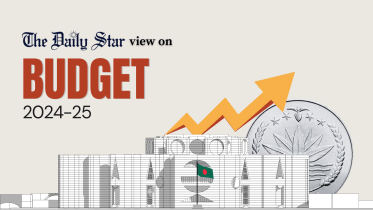black money whitening
Scope for whitening black money goes
The interim government has finally scrapped the controversial provision allowing the legalisation of undisclosed income through the purchase of apartments and land in the upcoming fiscal year.
22 June 2025, 18:12 PM
Govt may scrap money whitening provision
The interim government is likely to scrap the provision that allows black money to be legalised through the purchase of apartments and land in the next fiscal year (FY) 2025-26, amid criticism from civil society groups, think tanks and watchdogs.
21 June 2025, 18:02 PM
S Alam sons: They used fake pay orders even to legalise black money
Ashraful Alam and Asadul Alam Mahir, two sons of controversial businessman Mohammed Saiful Alam, deprived the state of Tk 75 crore in taxes by legalising Tk 500 crore in undisclosed income, documents obtained by The Daily Star have revealed.
18 September 2024, 01:23 AM
Real estate still a haven for black money
The scope for legalising undisclosed income without facing any questions remains as the tax administration has not scrapped the provision of whitening black money in case of the purchase of flats and land, raising criticism.
4 September 2024, 18:00 PM
Amnesty to black money may continue despite criticism
Despite widespread condemnation from economists, watchdogs, businesspeople and even multiple lawmakers, the government is expected to retain the amnesty allowing individuals and businesses to whiten black money without scrutiny by paying a 15 percent tax in the upcoming fiscal year.
25 June 2024, 18:00 PM
Whitening Black Money: ‘Unethical, unjust and unacceptable’
Backtracking on its promise to eliminate black money, the government has once again made room to allow both individuals and companies to whiten money without facing scrutiny and by paying a 15 percent tax, a move that drew sharp criticism from economists and civil society.
6 June 2024, 18:00 PM
Another mostly disappointing budget
Budget admits we are in a crisis, but offers no direction out of it
6 June 2024, 17:00 PM
The many immoralities behind the govt’s black money whitening scheme
What message is the government trying to send with its black money whitening facility?
6 June 2024, 10:50 AM
No amnesty for black money stashed abroad from FY24
The unquestioned amnesty to bring back money stashed abroad is not going to continue in 2023-24 fiscal year, which begins in July.
1 June 2023, 17:34 PM











